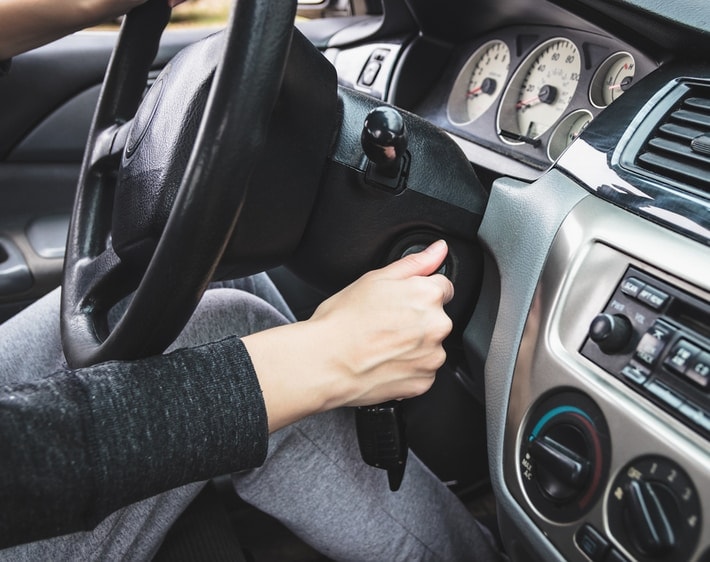Having trouble starting your car? Don’t worry!
This article will help you troubleshoot and resolve common car starting issues. Whether it’s a dead battery, faulty starter motor, or fuel delivery problem, we will guide you through the steps to identify the root cause and provide solutions to get your car up and running smoothly.
Read on for practical tips and techniques to diagnose and fix car starting problems, so you can save time and money by avoiding unnecessary trips to the mechanic. Don’t let car starting issues keep you stranded on the side of the road. Let’s dive in and get your car back on the road in no time.

Credit: www.firestonecompleteautocare.com
Common Causes Of Car Starting Issues
Car starting issues can be caused by a dead battery, faulty starter motor, fuel system problems, or ignition system issues. When your car fails to start, it is often due to a dead battery, which may require a jump start or replacement.
Another common culprit is a faulty starter motor, preventing the engine from turning over. Fuel system problems, such as clogged filters or fuel pump issues, can also result in starting difficulties. Additionally, ignition system issues, like worn spark plugs or a malfunctioning ignition coil, can disrupt the starting process.
If you experience car starting issues, it is important to identify the underlying cause and address it promptly to ensure your vehicle remains reliable and roadworthy.
Signs Of Car Starting Issues
Car starting issues can be indicated by a clicking sound when turning the key. Another sign is when the engine cranks but doesn’t start. Intermittent starting problems may also be experienced. Additionally, dashboard lights may flicker, indicating a potential starting issue.
It’s important to address these problems promptly to avoid being stranded on the road. A professional inspection and maintenance can help identify and resolve the root causes of these starting issues. By addressing these problems early on, you can ensure the reliable performance of your car and avoid inconvenient breakdowns.
So, if you notice any signs of car starting issues, it’s best to have them checked by a qualified mechanic as soon as possible.
Troubleshooting Car Starting Issues
Troubleshooting car starting issues can be done by checking the battery voltage, testing the starter motor, inspecting the fuel system, and checking the ignition system. By checking the battery voltage, you can ensure that the battery is providing enough power to start the car.
Testing the starter motor will help determine if it is the source of the problem. Inspecting the fuel system is important to make sure there is enough fuel reaching the engine. Checking the ignition system will help identify any issues with the spark plugs or ignition coils.
These steps are crucial in diagnosing and resolving car starting issues. Regular maintenance and proactive troubleshooting can help prevent these problems from occurring in the first place.
Diy Solutions For Car Starting Issues
If you’re experiencing car starting issues, there are a few diy solutions you can try. First, jump-starting your battery can often resolve the problem. Make sure to properly connect the jumper cables to both vehicles’ batteries and follow the correct sequence.
If the issue persists, check the battery terminals for corrosion. Cleaning them with a mixture of baking soda and water can help restore a good connection. Another potential culprit could be the starter motor. If it’s not functioning properly, you may need to replace it.
Lastly, don’t overlook the spark plugs. They are responsible for igniting the fuel-air mixture in the engine, so if they are worn or damaged, replace them to improve starting performance. By following these steps, you can resolve many car starting issues on your own.
Preventive Measures For Car Starting Issues
Taking preventive measures can help you avoid car starting issues. One effective method is to use a battery charger or tender to keep the battery in good condition. Additionally, make sure to always keep your fuel tank above half-full, as running on a low tank can put stress on the starting system.
Regular inspection of ignition system components is also crucial to prevent any issues. By keeping an eye on the spark plugs, ignition coils, and other related parts, you can catch potential problems early on and address them before they worsen.
Taking these steps will help ensure that your car starts smoothly every time you turn the key.
Conclusion
Dealing with car starting issues can be frustrating and inconvenient, but with a little knowledge and some troubleshooting skills, you can effectively address these problems. By understanding the common causes of car starting issues and applying the appropriate solutions, you can save yourself time and money.
Remember to regularly check your battery, starter motor, and fuel system for any signs of wear or damage. Additionally, keep up with regular maintenance and tune-ups to ensure that your car is running smoothly. If you do encounter car starting issues, try not to panic and instead take a systematic approach to diagnose the problem.
By following these guidelines, you’ll be better equipped to handle car starting issues and keep your vehicle in optimal condition. Stay informed, be proactive, and enjoy a stress-free driving experience.

